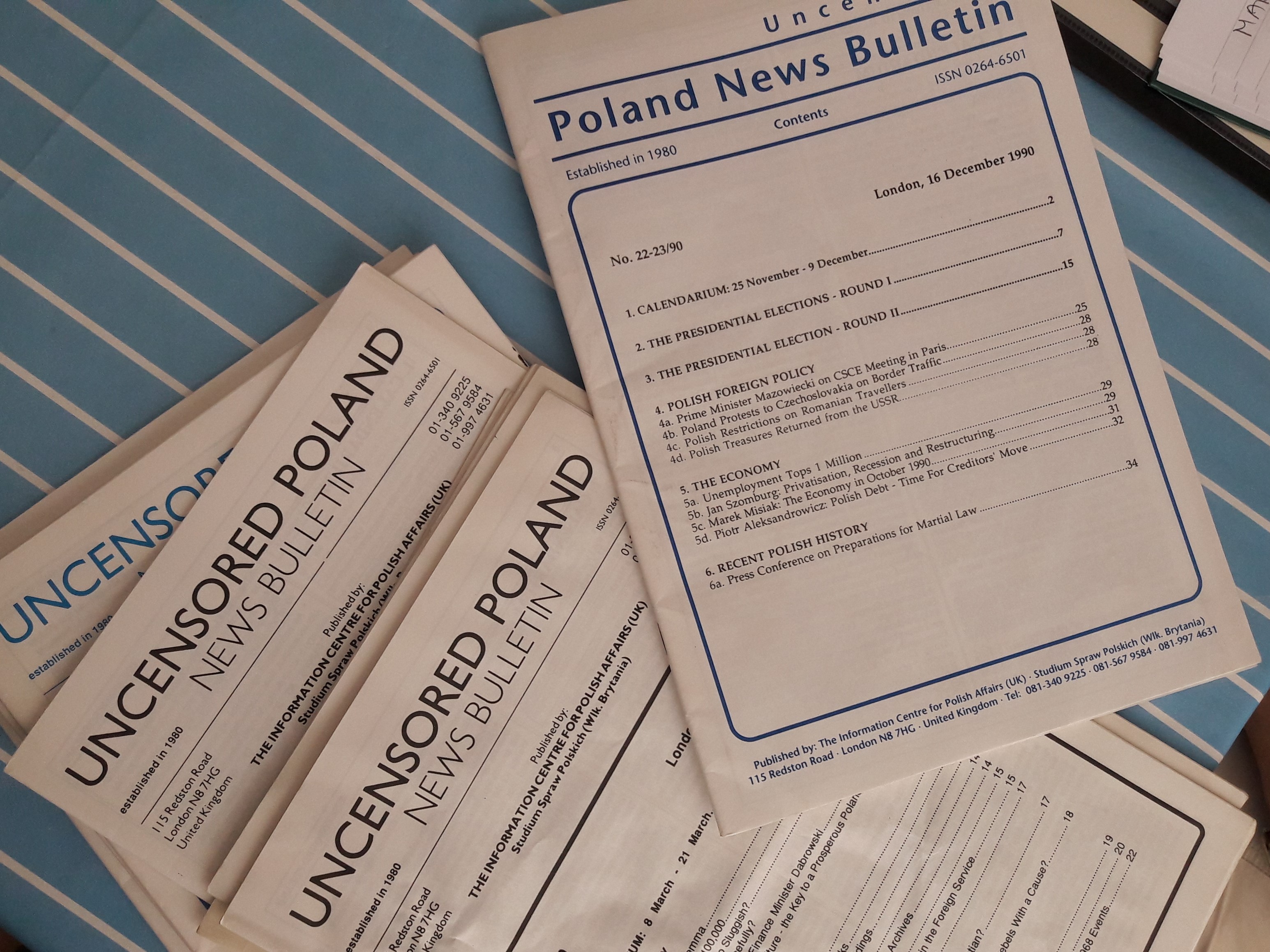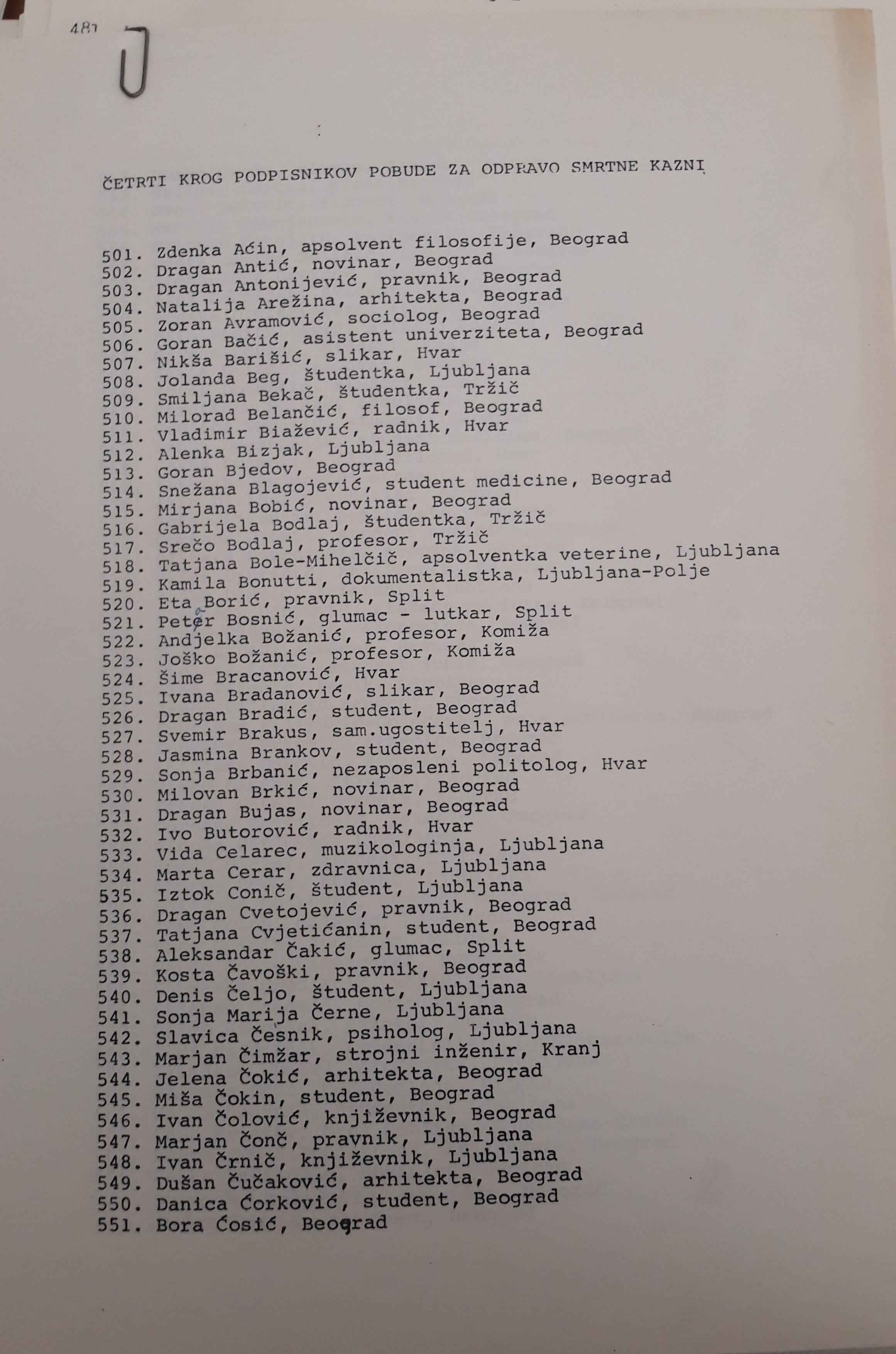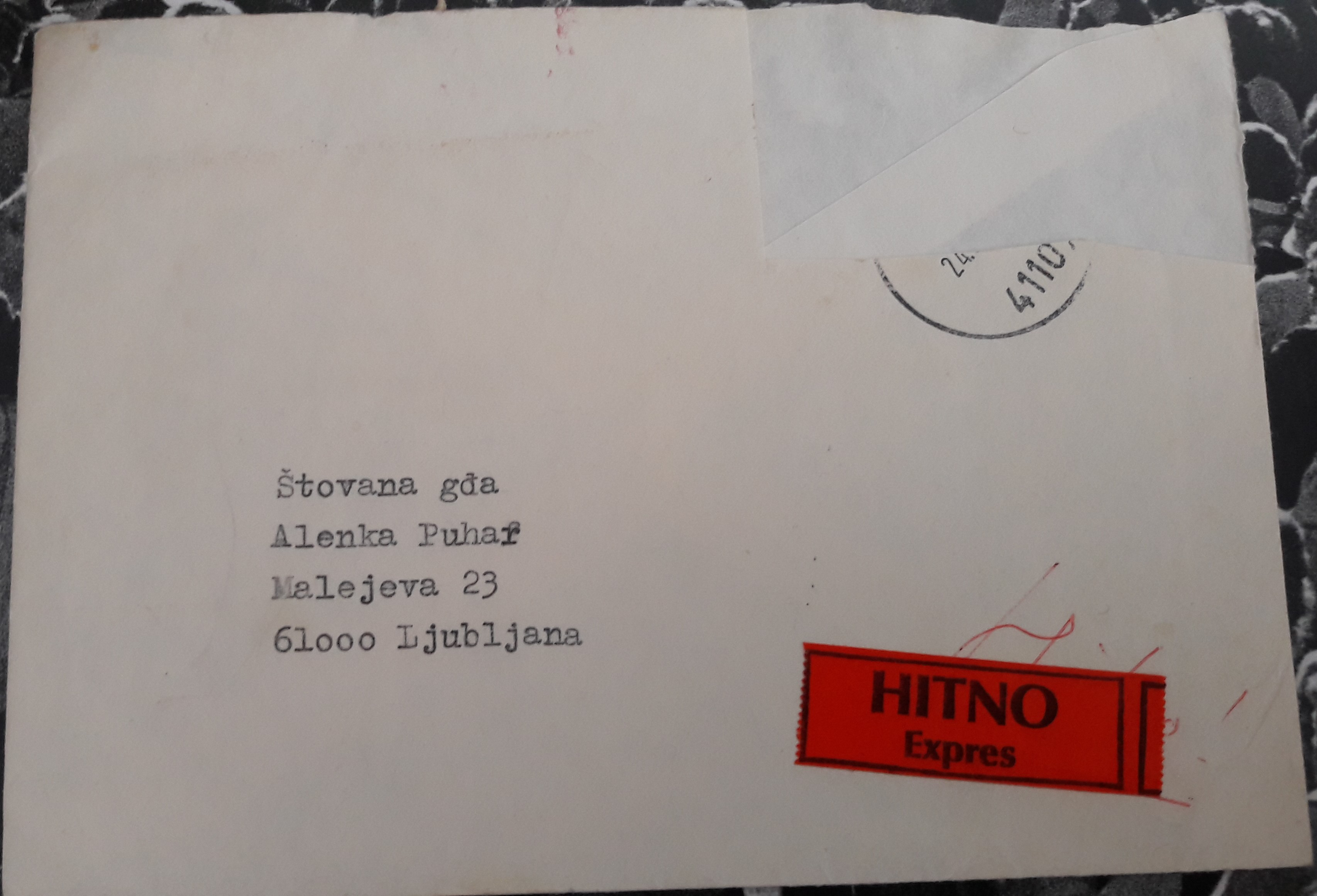Alenka Puhar's personal collection on the human rights movement in Slovenia/Yugoslavia was largely created in the 1980s, and the oldest publication which was also crucial to the professional and life path of Alenka Puhar is George Orwell’s book 1984, translated into the Slovenian language by Puhar herself in 1967. It is also the oldest work in the entire collection and its year of publication is taken as the founding date of this collection.
Alenka Puhar became interested in human rights issues in her student days when she was translating the novel 1984. First, she wrote about them as a journalist and later acted as an activist for the improvement of human rights in Yugoslavia. Puhar was one of the key people working on the petition for the abolition of the death penalty in Yugoslavia in 1983, and in the organization of mass protests in Ljubljana in 1988 and in the Slovenian spring in the late 1980s.
Translating George Orwell’s dystopian novel 1984 encouraged Puhar to significantly reflect on the nature of the communist regime for the first time. She emphasizes that the translation of such a text stirs people and fosters an aptitude for critical thinking, so they begin to think about the world in which they live and use it for comparative analysis. Puhar states that in the book tyranny is explained “as anatomy...every step of what is done and how it is done.” In the details of the book, she recognized the tyranny in her life: "To live in tyranny is to live in a world where crucial things are not discussed. In a tyranny, the crucial things are lied about." (Puhar, interview, July 6, 2017)
Alenka Puhar testifies to how seldom anyone in Slovenia called themselves “dissident” and how the word “opposition” was not used before 1988, because by using this earlier an individual would effectively be “confessing” to being a “counter revolutionary” (Puhar, interview, July 6, 2017). Puhar describes her activities as subversive, while the regime monitoring her activities described them as "right-wing" and dissidence, also using the term "right-wing bourgeoisie" (Puhar, interview, July 6, 2017).
Alenka Puhar’s collection consists of three parts: books, periodicals and documents. Most of the books are about historical and socio-political topics related to the history of Slovenia, Yugoslavia and communism. The key journals from the collection are the Slovenian Nova revija, (Puhar was a member of the editorial board) and the émigré Polish newspaper Poland News Bulletin and Index on Censorship. Most foreign editions came to her through Amnesty International, which was banned in Yugoslavia. The most valuable part of the collection is the documentation on the Human Rights Movement in Slovenia, primarily the campaign (petition) for the abolition of the death penalty in Yugoslavia in 1983. The entire box is dedicated to this issue and it contains hundreds of original signatures for the abolition of the death penalty from all over Yugoslavia. The collection also attests to Puhar's participation in various campaigns against different social phenomena, political trials and provisions of the criminal code, and it also contains documentation on the activities of the Helsinki Committee for Human Rights. At the same time, the collection testifies to the inter-republic cooperation of Yugoslav dissidents and contains letters from Ivan Janković, Vojislav Koštunica, Kosta Čavoški, Vladimir Šeks, Dobroslav Paraga, Marko Veselica and others (Puhar, interview, July 6, 2017).
The materials from the collection have so far been used for the publication of two books by Alenka Puhar, Peticije, pisma in tihotapski časi (Petitions, Letters and a Time of Smuggling) Maribor: Obzorja, 1985), and Slovenski avtoportret 1918-1991 (A Slovenian Self-Portrait 1918-1991), Ljubljana: Nova revija, 1992).



